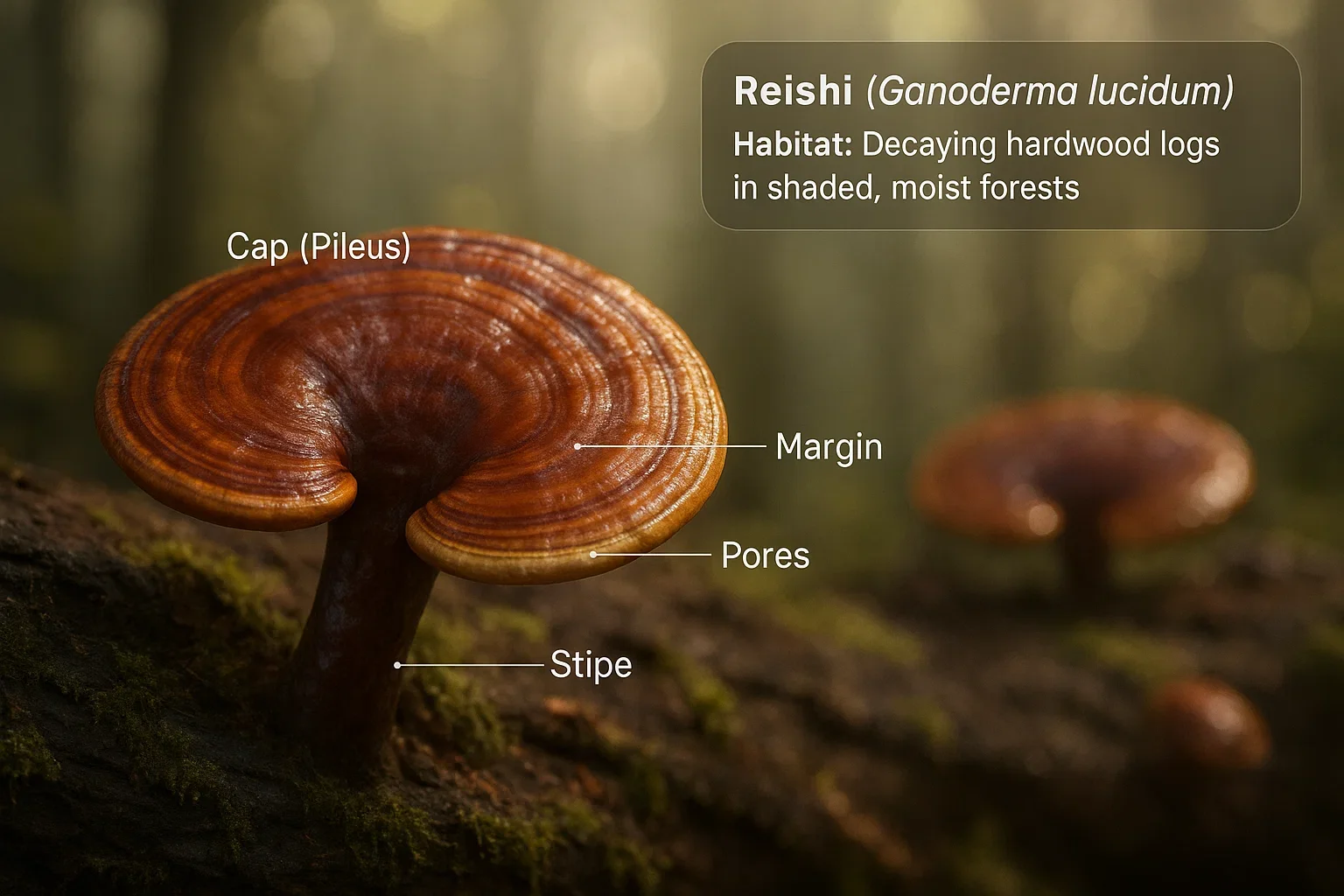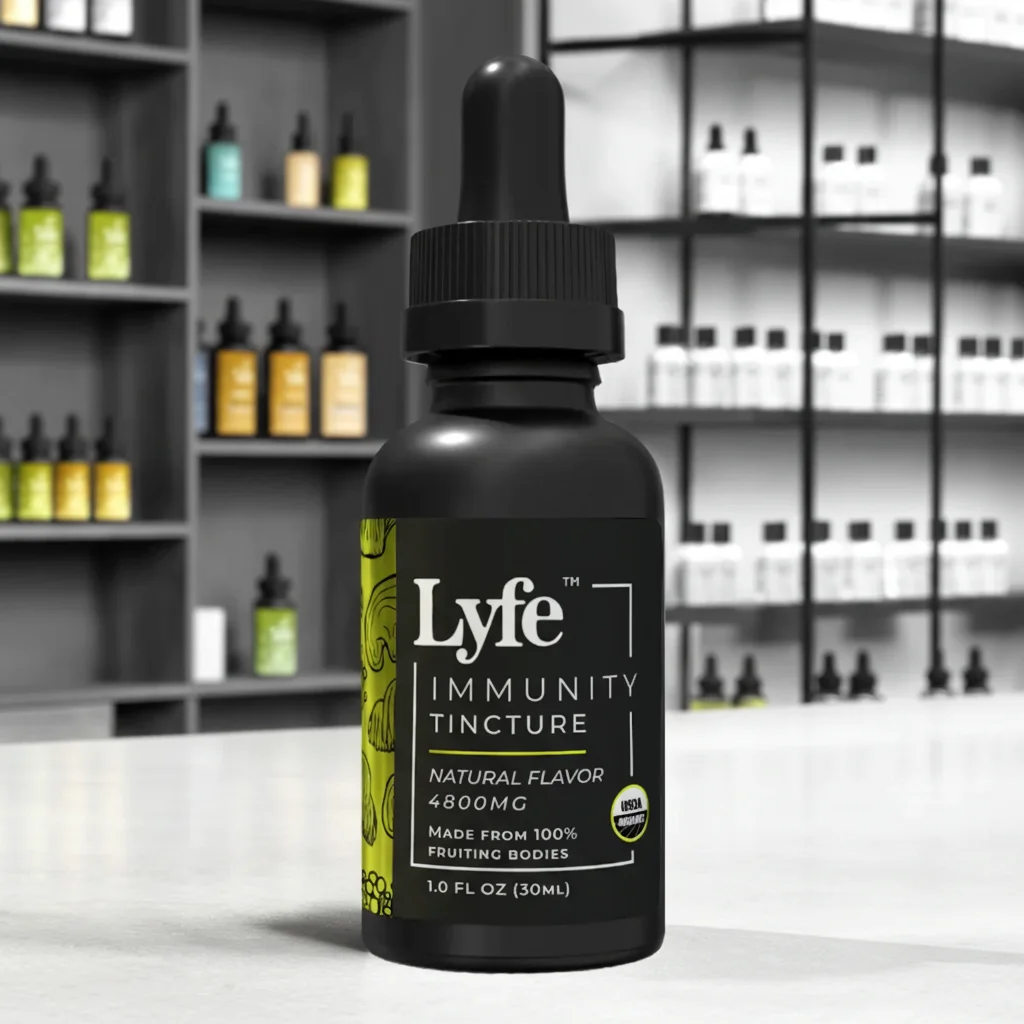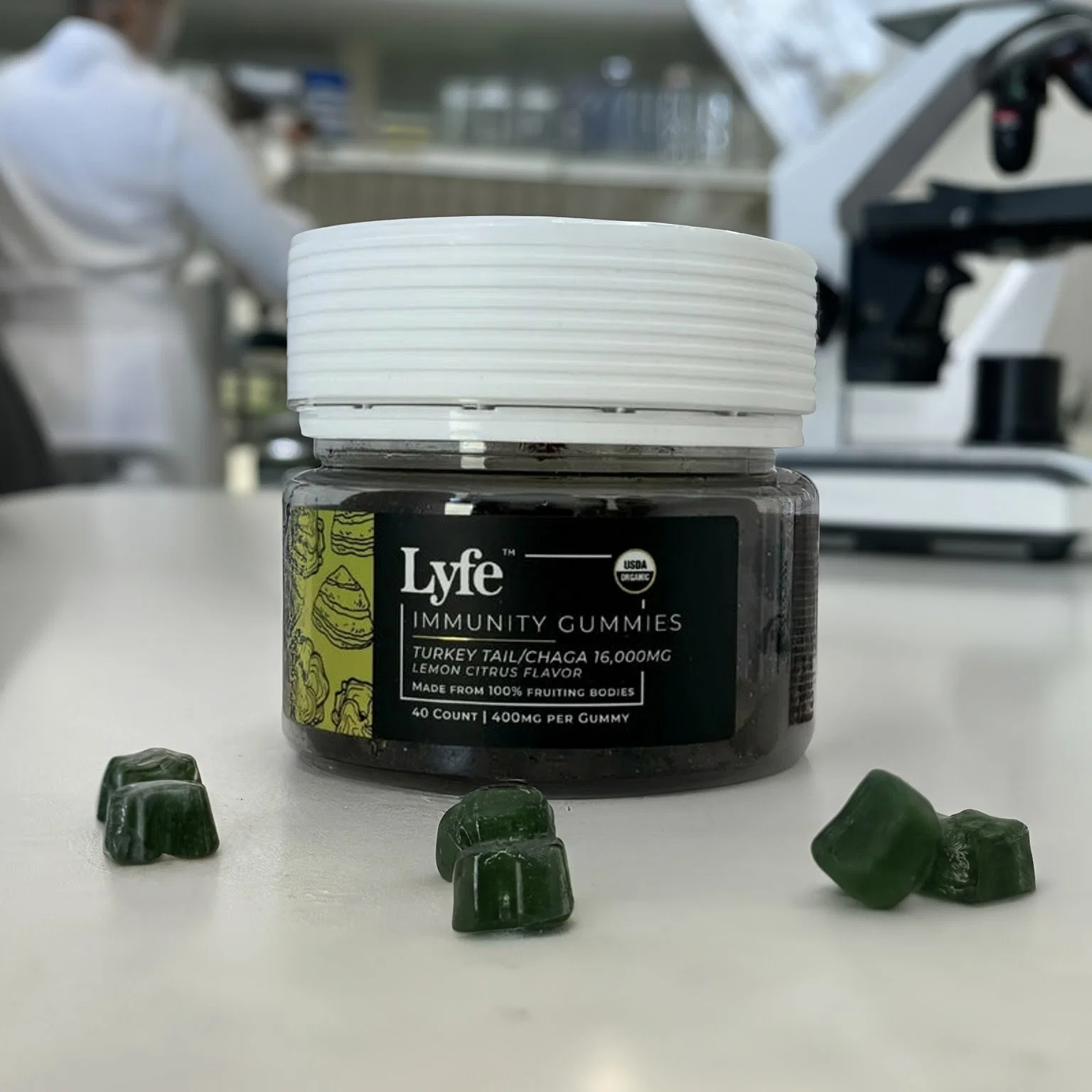Reishi Through History
From ancient Chinese emperors to modern wellness
Historical Milestones
2000+ years as the King of Herbs
First Documentation in Chinese Medicine
Shen Nong Ben Cao Jing - The Divine Farmer's Materia Medica
Reishi first documented as 灵芝 (Lingzhi - "Divine Mushroom") in the earliest Chinese pharmacopoeia. Classified as a "superior herb" that could be taken long-term without side effects.
Traditional Uses:
- ✓ Promoting longevity and immortality
- ✓ Supporting heart and mind health
- ✓ Enhancing spiritual awareness
- ✓ Reserved exclusively for emperors
Han Dynasty Imperial Use
Emperor's Exclusive Mushroom
Reishi became associated with immortality and spiritual enlightenment, available only to emperors and nobility. Imperial courts maintained special gardens for cultivating Reishi, symbolizing divine favor and eternal life.
Imperial Practices:
- ✓ Reserved for emperors and imperial family
- ✓ Symbol of divine favor and immortality
- ✓ Used in imperial longevity rituals
- ✓ Associated with spiritual enlightenment
Taoist Integration
Taoist Alchemy & Practices
Reishi becomes integral to Taoist practices and alchemy, believed to harmonize yin and yang energies. Used by Taoist masters for "inner alchemy" and spiritual cultivation.
Taoist Applications:
- ✓ Inner alchemy and longevity practices
- ✓ Harmonizing yin and yang energies
- ✓ Supporting three treasures (Jing, Qi, Shen)
- ✓ Spiritual cultivation and enlightenment
Li Shizhen's Documentation
本草纲目 (Compendium of Materia Medica)
Li Shizhen's comprehensive text documents Reishi's therapeutic properties, establishing it as the premier "superior herb" in Traditional Chinese Medicine with detailed preparation methods.
Documented Properties:
- ✓ Heart and cardiovascular support
- ✓ Immune system enhancement
- ✓ Stress and anxiety relief
- ✓ Longevity and anti-aging
Western Scientific Discovery
Carl Friedrich Philipp von Martius
German botanist first describes Reishi scientifically, naming it Ganoderma lucidum and introducing it to Western science, though its therapeutic potential remained largely unexplored for decades.
Scientific Classification:
- ✓ Kingdom: Fungi
- ✓ Phylum: Basidiomycota
- ✓ Class: Agaricomycetes
- ✓ Family: Ganodermataceae
- ✓ Genus: Ganoderma
Modern Scientific Validation
Compound Isolation and Clinical Studies
Modern science validates traditional wisdom through compound isolation, clinical trials, and commercial cultivation. Over 300 studies confirm Reishi's benefits for immune function, stress management, and cardiovascular health.
Scientific Achievements:
- ✓ Triterpenes and polysaccharides isolated
- ✓ Immune modulation mechanisms identified
- ✓ Clinical trials confirm health benefits
- ✓ Global recognition as functional food
The King of Herbs: Imperial Legacy
How Reishi became the most revered mushroom in Chinese history
灵芝 (Lingzhi) - "Divine Mushroom"
Reishi earned its title "King of Herbs" through over 2000 years of exclusive use by Chinese emperors and nobility. So rare and valuable was Reishi that finding it in the wild was considered a sign of divine favor and auspicious fortune.
In traditional Chinese culture, Reishi represented the ultimate symbol of longevity, immortality, and spiritual attainment. Emperors maintained special gardens dedicated to cultivating Reishi, believing it would grant them eternal life and divine protection.
Imperial Practices:
- ✓ Consumed daily by emperors for longevity
- ✓ Used in imperial longevity rituals and ceremonies
- ✓ Symbol of divine favor and auspicious fortune
- ✓ Combined with other precious herbs in imperial formulas

Reishi (Ganoderma lucidum) - The "King of Herbs"
Today, modern cultivation techniques have made Reishi accessible to everyone, not just emperors. Yet it maintains its revered status as the "King of Herbs" and continues to be one of the most studied and validated medicinal mushrooms in the world, with over 300 scientific studies confirming its traditional health benefits.
Cultural Traditions & Uses
How different cultures have revered Reishi through the ages
Traditional Chinese Medicine
King of Herbs Status
Reishi is classified as a "superior herb" in TCM, meaning it can be taken long-term without side effects and promotes overall health and longevity.
Five Element Theory
Used to balance all five elements (wood, fire, earth, metal, water) and support the three treasures: Jing (essence), Qi (energy), and Shen (spirit).
Meridian System
Enters Heart, Lung, Liver, and Kidney meridians, supporting cardiovascular, respiratory, immune, and mental health.
Modern Status
Category 1 approved medicine in China, widely used in hospitals for immune support, stress management, and cardiovascular health.
Japanese Medicine
Mannentake Tradition
Known as "Mannentake" (10,000-year mushroom) in Japan, symbolizing longevity and eternal life.
Samurai Use
Used by samurai warriors for mental clarity, stress management, and spiritual preparation before battle.
Tea Ceremony
Powdered Reishi incorporated into traditional tea ceremonies for meditation and spiritual enhancement.
Modern Integration
Still widely used in Japanese hospitals and clinics for immune support and stress management.
Buddhist & Taoist Practices
Meditation Enhancement
Used by Buddhist monks and Taoist practitioners to enhance meditation, mental clarity, and spiritual awareness.
Longevity Practices
Central to Taoist longevity practices, supporting the cultivation of "inner alchemy" and spiritual development.
Spiritual Retreats
Consumed during extended spiritual retreats to support mental clarity and physical endurance.
Modern Wellness
Integrated into contemporary mindfulness and wellness practices worldwide.
Modern Applications: Bridging Ancient Wisdom & Scientific Validation
From imperial courts to evidence-based wellness
For over 2000 years, Reishi has been revered as the "King of Herbs" across Asian cultures, reserved for emperors and used to promote longevity, spiritual enlightenment, and overall wellness. Today, modern science validates what ancient healers discovered—Reishi's unique compounds that support immune function, stress management, and cardiovascular health.
From the imperial courts of ancient China to modern wellness routines worldwide, Reishi continues to be one of the most studied and validated medicinal mushrooms. With over 300 scientific studies confirming its benefits, Reishi has earned its place as a cornerstone of evidence-based wellness and functional medicine.
Experience Traditional Wisdom in Modern Form
Our Reishi products honor 2000+ years of traditional use while meeting modern quality standards

Mushroom Immunity Tincture
Reishi & Chaga blend to strengthen immune defense.

Mushroom Immunity Gummies
Immune-boosting gummies with Reishi and Turkey Tail.
Real Experiences from Our Community
Join thousands who have discovered the immune and stress-relief benefits of Reishi through our products

Lyfe Brew coffee changed my mornings! I feel so energized without the jitters.
Sarah M.

The Immunity gummies help me stay healthy year-round, especially during cold season.
Jason L.

I use the Immunity tincture daily and notice improved stress management and better sleep.